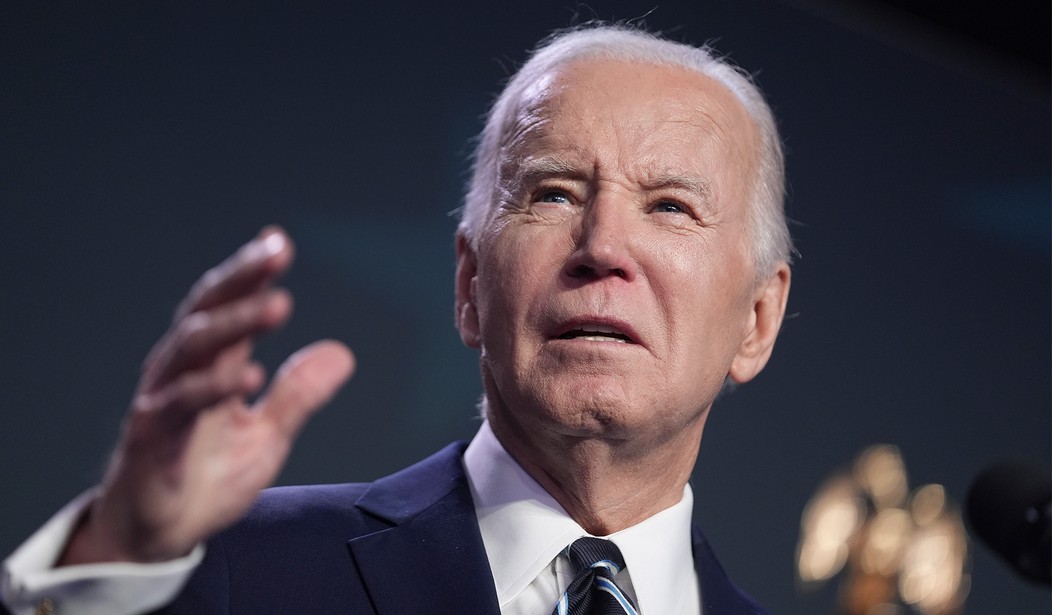New York Times columnist Thomas Friedman recently floated a trial balloon called the Biden Doctrine for the Middle East, the story’s headline saying it would be “big.” In fact, The NYT should have titled the piece correctly “a big disaster.” If the Biden administration moves forward with this naïve plan, it would be a perfect crescendo to the inept foreign policy of the last three years that has left millions in misery and the world aflame.
Friedman enthusiastically sees three components of the so-called Biden Doctrine for the Middle East. A strong and robust response to Iranian proxies, an expanded security alliance between the US and the Kingdom of Saudi Arabia (KSA) that features KSA normalization of relations with Israel, and an immediate diplomatic initiative to force a Palestinian State in the West Bank and Gaza.
Keeping Iranian proxies off the chess board as Israel moved on Gaza should have been a top US priority from the start. Instead, a tepid response emboldened Tehran and disrupted world shipping. The administration was warned its hand would be forced, and so it was with the death of three American soldiers in Jordan in a late January drone attack.
In response, the Biden administration launched retaliatory attacks against Iranian proxies in Iraq and Syria, as well as Yemen. It is easy to see that even though Iran and the US have openly stated they do not want a wider regional war, that is exactly what is happening. Retaliation is not a coherent strategy, and now the region is only one event from an expanding, out-of-control crisis. A likely but horrific scenario could be a downed US airman or special forces combatant captured by Iranian proxies.
Blithe calls for a “robust response” to Iran ignoring the quagmire that would result if America and its few supportive allies were pulled into a regional war in the Middle East. Iran is geographically massive, with a military ranked 14 of 145 in global power. It has famously fanatical leadership and a young population. In addition, the Biden administration accomplished what was seemingly impossible just three short years ago, driving China, Iran, and Russia into a Triangular Alliance.
Recommended
A “robust military response” is unlikely to impact Iranian policy, especially based on the first three years of the Biden Administration aiding and abetting the Ayatollahs, the very reason the Middle East is now aflame. When Biden came into office, Trump administration sanctions were crippling Iran. The decision to reverse these policies and appease the Ayatollahs brought on this crisis. An immediate return to these policies would be a logical first step instead of a rush to put American men and women into combat that surely will expand and may draw in China, Russia, and other Middle East actors.
Speaking of other Middle East actors, Freidman is correct in saying that efforts to engage Saudi Arabia would be effective. This was the cornerstone of Trump’s highly effective Abraham Accords and was on the verge of a breakthrough — Israel and the KSA were working toward official relations of the kind already ratified by other Gulf monarchies. However, the Saudis put that on hold after the Hamas attacks.
The Abraham Accords were based on a fundamental understanding that Saudi Arabia, the Gulf States, and several other mostly Sunni countries are unhappy with the rise of the bullying Shia theocracy in Tehran. A workable counter to the almost nuclear-armed Ayatollahs can be found in these nations and should be encouraged. Unfortunately, in a rush to undo everything done by Trump, Biden reverted to appeasing Iran.
The two-state idea is the worst of the three points. Forcing Israel into accepting a Palestinian State in the West Bank and Gaza would only exacerbate the Middle East crisis. The “land for peace” approach of the last six decades has been a dismal failure, and doing more of the same will surely yield worse results. Israel tried this with the now infamous 2005 handover of Gaza. They have been under nearly constant attack from Gaza ever since, culminating in the October 7 massacre.
To recognize a Palestinian State, Friedman calls for “a set of defined, credible institutions and security capabilities to ensure that this state was viable and that it could never threaten Israel.” International attempts to do just that for the last two decades have been an abject failure. A case in point, last weekend, Hamas tunnels were found beneath the UN Palestinian Refugee Agency (UNRWA) building in Gaza, a poignant reminder that much of the international aid flowing into Gaza is not going to “credible institutions.”
Friedman optimistically sees a peaceful Palestinian State developing in the West Bank and Gaza but conveniently forgets to mention that the Palestinian Authority ruling in the West Bank and Hamas, until recently ruling in Gaza, are at odds with one another. Why would Israel want to negotiate an unworkable plan with divided leadership? Why would we encourage it?
Hamas was not founded on a plan to develop peaceful and credible institutions, but to destroy Israel and establish a Judenrein Middle East. A poll conducted after the October 7 Hamas massacres found that 72% of the Gaza populace supported the attacks, and support for Hamas tripled in the West Bank. These are not progenitors of a peaceful plan for a state to live in harmony as an Israeli neighbor. To “reward” Hamas now by recognizing an independent Palestinian State would reinforce its obvious belief that killing Jews is an effective strategy.
In January 2014, Robert Gates stated Biden was “wrong on nearly every major foreign policy and national security issue over the past four decades.” The Biden Doctrine would be a fitting capstone to a fifth decade of national security incompetence.
Dr. David Murphy is a Faculty Fellow at the Centennial Institute and Dean of Behavioral and Social Sciences, College of Adult and Graduate Studies at Colorado Christian University. He served 25 years as an Air Force fighter pilot and Group Commander before retiring in 2014. He writes extensively on national strategy, security policy, leadership, education, military history, and Just War.

























Join the conversation as a VIP Member